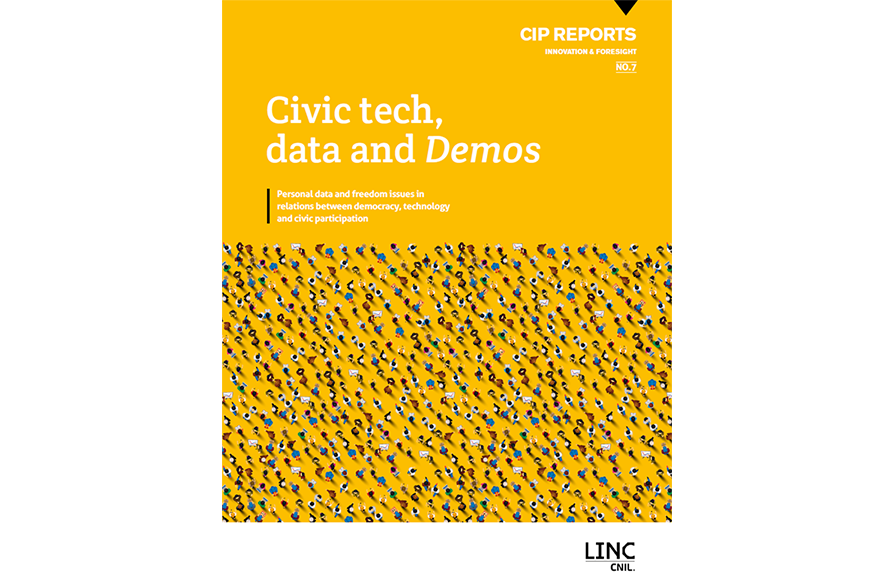Civic Tech, Data and Demos: the 7th IP Report Explores the links between Democracy and Technology
In December 2019, the CNIL published its seventh Innovation and Foresight report, an exploration of personal data and freedom issues in relations between democracy, technology and civic participation.

The rise in abstention, the weakening of intermediary bodies and the rejection of the professionalization of political staff expose the legitimacy crisis of our democraties. This context of mistrust has accelerated the emergence of civic technologies (civic tech), an ecosystem of services and tools that aims to strengthen citizen’s commitment and democratic participation. The civic tech movement aspires to redesign the relationship between public debate and private commitment, direct representation and new forms of democratic expression.
Political participation through digital technologies (social networks, associative platforms, etc.) raises personal data protection and privacy issues. How can we build virtuous models that respect the rights of individuals and the foundations of democracy?
Tech and Demos, old links that lead to civic tech
This report explores the ethical and societal issues raised by the links between technology and political representation. In the first chapter, we review this close relationship that are so prevalent in the imagination of the Internet, from the political uses in the militant movements of the 1990s to the digital democracy and the emergence of civic tech. We also warn against the temptations of techno solutionism.
Civic technologies are not neutral. The technical and economic choices made by its promoters have consequences on the trust and support of citizens. From identification data to political opinions, civic techs collect a large amount of particularly sensitive personal information. It is therefore crucial that the purpose of their use is clearly defined and that they are not reused for political or economic purposes. While the collection of some personal information may be necessary to limit certain biases in the representativeness of the consultation, it is still necessary that political expression can be carried out anonymously - or under a pseudonym - in order to preserve individual freedoms. Finally, the use of algorithms for classifying and/or analyzing contributions has an impact on the modalities of the debate and its results: making visible and explicit the choices on which civic technologies are based are essential democratic guarantees.
Possible recommendations to ensure that civic tech goes with confidence
This report proposes recommendations aimed at guaranteeing for civic tech an environment of trust that allows everyone to exercise their citizenship while respecting their rights to data protection. Actors in what is known as the civic tech ecosystem would have everything to gain by relying on the principles and obligations of the GDPR (purpose, accuracy, proportionality and relevance, limitation of retention periods, security and confidentiality, rights of individuals), as levers for building citizen confidence in civic technologies. They could go further by coming together to harmonize their practices and move towards the co-construction of a code of conduct as defined by the GDPR.
Public institutions should avoid making social networks the official bodies for participation. They have to maintain a form of sovereignty by avoiding any dependence on companies whose model they do not control. Alternative channels of expression and political mobilization should be maintained, including face-to-face arrangements that can go hand in hand with online participation. New modalities of participation can thus be explored. Civic technologies are a laboratory for digital citizenship, which must contribute to the promotion of a genuine culture of digital citizenship, respectful of privacy.



